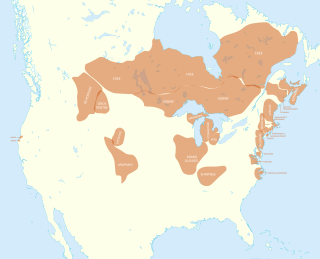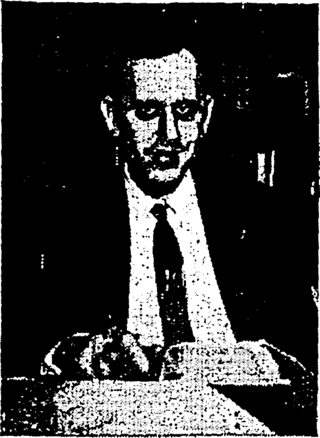Computational linguistics is an interdisciplinary field concerned with the computational modelling of natural language, as well as the study of appropriate computational approaches to linguistic questions. In general, computational linguistics draws upon linguistics, computer science, artificial intelligence, mathematics, logic, philosophy, cognitive science, cognitive psychology, psycholinguistics, anthropology and neuroscience, among others.

Avram Noam Chomsky is an American professor and public intellectual known for his work in linguistics, political activism, and social criticism. Sometimes called "the father of modern linguistics", Chomsky is also a major figure in analytic philosophy and one of the founders of the field of cognitive science. He is a laureate professor of linguistics at the University of Arizona and an institute professor emeritus at the Massachusetts Institute of Technology (MIT). Among the most cited living authors, Chomsky has written more than 150 books on topics such as linguistics, war, and politics. Ideologically, he aligns with anarcho-syndicalism and libertarian socialism.

William Clarence “Bill” Stokoe Jr. was an American linguist and a long-time professor at Gallaudet University. His research on American Sign Language (ASL) revolutionized the understanding of ASL in the United States and sign languages throughout the world. Stokoe's work led to a widespread recognition that sign languages are true languages, exhibiting syntax and morphology, and are not only systems of gesture.

The Algic languages are an indigenous language family of North America. Most Algic languages belong to the Algonquian subfamily, dispersed over a broad area from the Rocky Mountains to Atlantic Canada. The other Algic languages are the Yurok and Wiyot of northwestern California, which, despite their geographic proximity, are not closely related. All these languages descend from Proto-Algic, a second-order proto-language estimated to have been spoken about 7,000 years ago and reconstructed using the reconstructed Proto-Algonquian language and the Wiyot and Yurok languages.

The Misumalpan languages are a small family of languages spoken by indigenous peoples on the east coast of Nicaragua and nearby areas. The name "Misumalpan" was devised by John Alden Mason and is composed of syllables from the names of the family's three members Miskito, Sumo languages and Matagalpan. It was first recognized by Walter Lehmann in 1920. While all the languages of the Matagalpan branch are now extinct, the Miskito and Sumu languages are alive and well: Miskito has almost 200,000 speakers and serves as a second language for speakers of other indigenous languages in the Mosquito Coast. According to Hale, most speakers of Sumu also speak Miskito.

The Linguistic Society of America (LSA) is a learned society for the field of linguistics. Founded in New York City in 1924, the LSA works to promote the scientific study of language. The society publishes three scholarly journals: Language, the open access journal Semantics and Pragmatics, and the open access journal Phonological Data & Analysis. Its annual meetings, held every winter, foster discussion amongst its members through the presentation of peer-reviewed research, as well as conducting official business of the society. Since 1928, the LSA has offered training to linguists through courses held at its biennial Linguistic Institutes held in the summer. The LSA and its 3,600 members work to raise awareness of linguistic issues with the public and contribute to policy debates on issues including bilingual education and the preservation of endangered languages.
Literae humaniores, nicknamed classics, is an undergraduate course focused on classics at the University of Oxford and some other universities. The Latin name means literally "more human literature" and was in contrast to the other main field of study when the university began, i.e. res divinae, also known as theology. Lit. hum., is concerned with human learning, and lit. div. with learning treating of God. In its early days, it encompassed mathematics and natural sciences as well. It is an archetypal humanities course.

The Mantion–Meyah or (South) East Bird's Head languages are a language family of three languages in the "Bird's Head Peninsula" of western New Guinea, spoken by all together 20,000 people.
Lyle Richard Campbell is an American scholar and linguist known for his studies of indigenous American languages, especially those of Central America, and on historical linguistics in general. Campbell is professor emeritus of linguistics at the University of Hawaiʻi at Mānoa.
Mosan is a hypothetical language family consisting of the Salishan, Wakashan, and Chimakuan languages of the Pacific Northwest region of North America. It was proposed by Edward Sapir in 1929 in the Encyclopædia Britannica. Little evidence has been adduced in favor of such a grouping, no progress has been made in reconstructing it, and it is now thought to reflect a language area rather than a genetic relationship. The term persists outside academic linguistic literature because of Sapir's stature.

Dmitri Alfred Borgmann was a German-American author best known for his work in recreational linguistics.
Terrence Kaufman was an American linguist specializing in documentation of unwritten languages, lexicography, Mesoamerican historical linguistics and language contact phenomena. He was an emeritus professor of linguistics and anthropology at the University of Pittsburgh.
Dené–Yeniseian is a proposed language family consisting of the Yeniseian languages of central Siberia and the Na-Dené languages of northwestern North America.

Robert A. Blust was an American linguist who worked in several areas, including historical linguistics, lexicography and ethnology. He was Professor of Linguistics at the University of Hawaiʻi at Mānoa. Blust specialized in the Austronesian languages and made major contributions to the field of Austronesian linguistics.
The Northwest Sumatra–Barrier Islands languages are a group of Malayo-Polynesian languages spoken by the Batak and related peoples in the interior of North Sumatra and by the Nias, Mentawai people, and others on the Barrier islands off the western coast of Sumatra, Indonesia.

Applied Linguistics is a peer-reviewed academic journal in the field of applied linguistics established in 1980 and published by Oxford University Press. It appears six times a year. Current editor-in-chief is Christina Higgins.
Penelope "Penny" Eckert is Albert Ray Lang Professor Emerita of Linguistics at Stanford University. She specializes in variationist sociolinguistics and is the author of several scholarly works on language and gender. She served as the president of the Linguistic Society of America in 2018.

Robert E. Longacre was an American linguist and missionary who worked on the Triqui language and a text-based theory and method of discourse analysis. He is well known for his seminal studies of discourse structure, but he also made significant contributions in other linguistic areas, especially the historical linguistics of Mixtec, Trique, and other related languages. His PhD was at the University of Pennsylvania under Zellig Harris and Henry Hoenigswald. His 1955 dissertation on Proto-Mixtecan was the first extensive linguistic reconstruction in Mesoamerican languages. This was one of several SIL studies which helped to establish the Oto-Manguean language family as being comparable in time depth to Proto-Indo-European. His research on Trique was the first documented case of a language with five distinct levels of tone.
Fusheini Hudu Angulu is a Ghanaian linguist and specialist in Dagbani language phonology. He lectures at the University of Ghana department of Linguistics.









